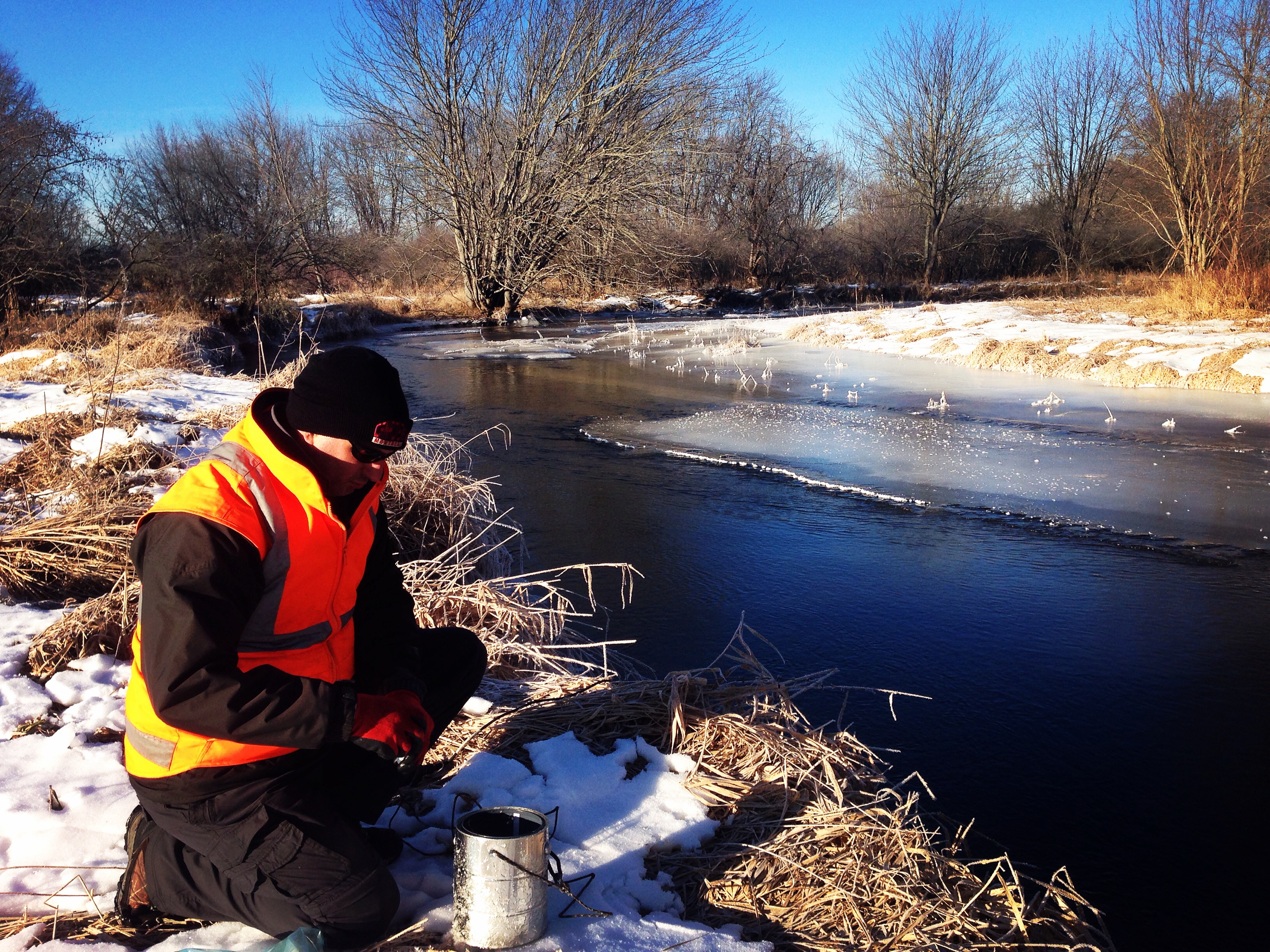Conservationist Profile – Ben Whalen (KWRC)
October 6, 2017Ben Whalen is the project manager for the Kennebecasis Watershed Restoration Committee (KWRC). He has been working in watershed management for more than 15 years after graduating from NBCC Miramichi with a diploma in Environmental Technology.
“I love fly fishing, backpacking and hockey, but not as much as I love my wife (Michelle), my son (Seth, 12), and my daughter (Shaylee, 8),” he said. “We live in Sussex Corner.”
Ben first became involved with the KWRC in 1995 straight out of community college.
“I worked three summer seasons with what was then called the Trout Creek Model Watershed, and is now the Kennebecasis Watershed Restoration Committee. Following contracts elsewhere for a time, it wasn’t until I met my wife and we started a family that we returned to the Sussex region. In 2007 I returned to the KWRC, becoming the project manager in October of that year.”
Ben has loved being on the water and fishing since he was a child.
“Since I was little I have fished the rivers of the Kennebecasis, and since that time I have always had an interest in how water cycles work, how rivers flow, and how they connect all of us. My ties to this area, my knowledge of the local landscape, and my relationships with many of the people kept drawing me back to the Kennebecasis.”
What does Ben love about his work with the KWRC?
“The diversity of my job, the reward of seeing a restoration site come to completion and then mature. The ability to show my children how the KWRC is making a positive impact on the local environment keeps me going and knowing that I’m giving them a better chance at enjoying the river as I did is inspiring.”
“For me conservation is a balancing act that will allow us as people to continue to thrive within our environment. We’ll be able to enjoy the natural wonders and thus our lives much better and a happy society is a healthy one. Conservation keeps us happy…or at least keeps me happy.”
Ben notes that the KWRC prides itself on creating win-win relationships and partnerships, including the partnership it has with the ASCF.
“These relationships help build not only a better ecosystem but a community as a whole. Working to restore waterways and fish habitats also results in a stronger economy and community and many people overlook that impact. Our efforts to engage volunteers and educate young students about healthy ecosystems has a large trickledown effect that will improve a region’s sustainable future and this will be important for generations to come.”
